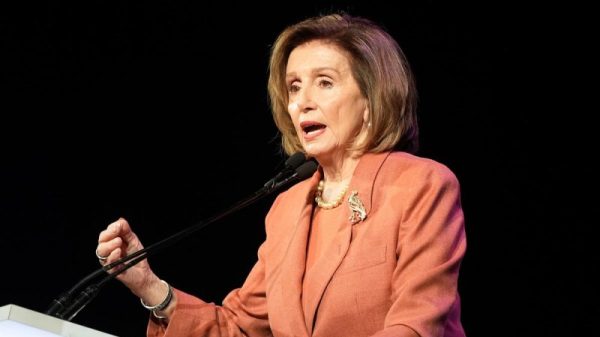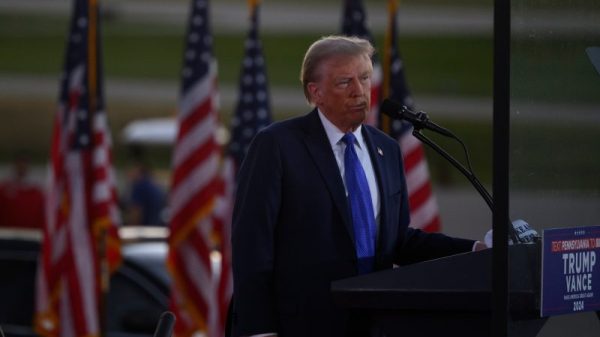Here’s a quick recap of the crypto landscape for Monday (November 10) as of 9:00 a.m. UTC.
Get the latest insights on Bitcoin, Ether and altcoins, along with a round-up of key cryptocurrency market news.
Bitcoin and Ether price update
Bitcoin (BTC) was priced at US$105.995, a 3.7 percent increase in 24 hours. Its highest valuation of the day so far was US$$106,491, while its lowest was US$102,061.
Bitcoin price performance, November 10, 2025.
Chart via TradingView
After a weekend that saw Bitcoin briefly dip below US$100,000 and retest a US$99k support zone, the market staged a modest rebound on Monday (November 10) with BTC trading around the mid-$100k range, signaling short-term resilience after October’s steep correction.
At the same time, demand through spot Bitcoin ETFs has been uneven. The week into Friday saw multi-day outflows and a recent climb in redemptions that reversing a brief stretch of inflows. Those ETF redemptions act mechanically to create sell pressure at the margin and were a key amplifier of October’s deleveraging.
Meanwhile, macro conditions continues to matter. The US government shutdown has delayed key economic data, including the jobs report, though independent estimates peg the monthly unemployment rate at around 4.4 percent. With limited official data and a still-tight labor market, traders remain focused on how these factors could influence liquidity and interest rates.
Adding to the week’s early developments, market commentator Axel Adler Jr. took note President Trump’s announcement on Truth Social of a US$2,000 direct-payment program for most Americans, funded by tariff revenues and estimated to cost between US$300 billion and US$500 billion.
Adler suggested that if some recipients channel these funds into crypto, retail demand for Bitcoin could strengthen, echoing the buying patterns seen during prior stimulus rounds and potentially positioning retail investors as the next catalyst for Bitcoin’s recovery.
Ether (ETH) was priced at US$3,592.47, a 4.1 percent increase in 24 hours. Its highest valuation of the day was US$3,647.92, while its lowest was US$3,441.75.
Altcoin price update
Solana (SOL) was priced at US$166.61, up by 5.3 percent over the last 24 hours. Its highest valuation of the day was US$169.36, while its lowest was US$159.11.
XRP was trading for US$2.49, up by 11.3 percent over the last 24 hours. Its highest valuation of the day was US$2.56, while its lowest was US$2.27.
Today’s crypto news to know
Crypto funds face US$1.3 billion in weekly outflows
Digital asset funds logged another week of heavy redemptions, with over US$1.3 billion flowing out of crypto investment products.
The decline marks the second straight week of billion-dollar losses as investors remain cautious after a record 40-day US government shutdown and the absence of key economic data.
Bitcoin products led the retreat with US$932 million in outflows, followed by Ethereum’s US$438 million, signaling widespread risk-off sentiment. Meanwhile, short Bitcoin funds recorded their largest inflows since May, hinting that some traders expect further downside before a rebound.
Nasdaq, Cboe, CME to offer spot, leveraged crypto trading
The Commodity Futures Trading Commission (CFTC) is preparing to authorize leveraged spot trading for Bitcoin and Ethereum across several regulated U.S. exchanges, marking a major step toward integrating crypto with mainstream markets.
Acting Chair Caroline Pham confirmed on X that the agency is in talks with CME Group, Cboe, Nasdaq, ICE Futures, Coinbase Derivatives, Kalshi, and Polymarket to roll out the new trading framework.
The plan would place all leveraged crypto transactions under the Commodity Exchange Act, requiring execution through a Designated Contract Market, which is the same system governing commodities futures.
Analysts expect the move to draw global trading volume away from offshore exchanges like Binance and Bybit, which have long dominated the leveraged space.
Japan’s FSA move to license crypto custodians
Japan’s Financial Services Agency (FSA) is drafting new registration rules for third-party custody and trading service providers following last year’s DMM Bitcoin hack, which exposed more than 48 billion yen (US$312 million) in losses.
Under the proposal, all custodians and external system operators would need to register with regulators before servicing licensed exchanges. The plan also mandates that exchanges use only FSA-approved partners to minimize operational risks.
Currently, Japan’s crypto framework requires exchanges to segregate and cold-store user funds but imposes no oversight on outsourced management systems—a loophole exploited in the DMM breach.
The attack was traced to Ginco, a Tokyo-based software firm that managed DMM’s trading infrastructure.
Most members of the Financial System Council’s working group have backed the proposal, which is expected to be submitted to the Diet in the 2026 legislative session.
Securities Disclosure: I, Giann Liguid, hold no direct investment interest in any company mentioned in this article.
Securities Disclosure: I, Meagen Seatter, hold no direct investment interest in any company mentioned in this article.

































